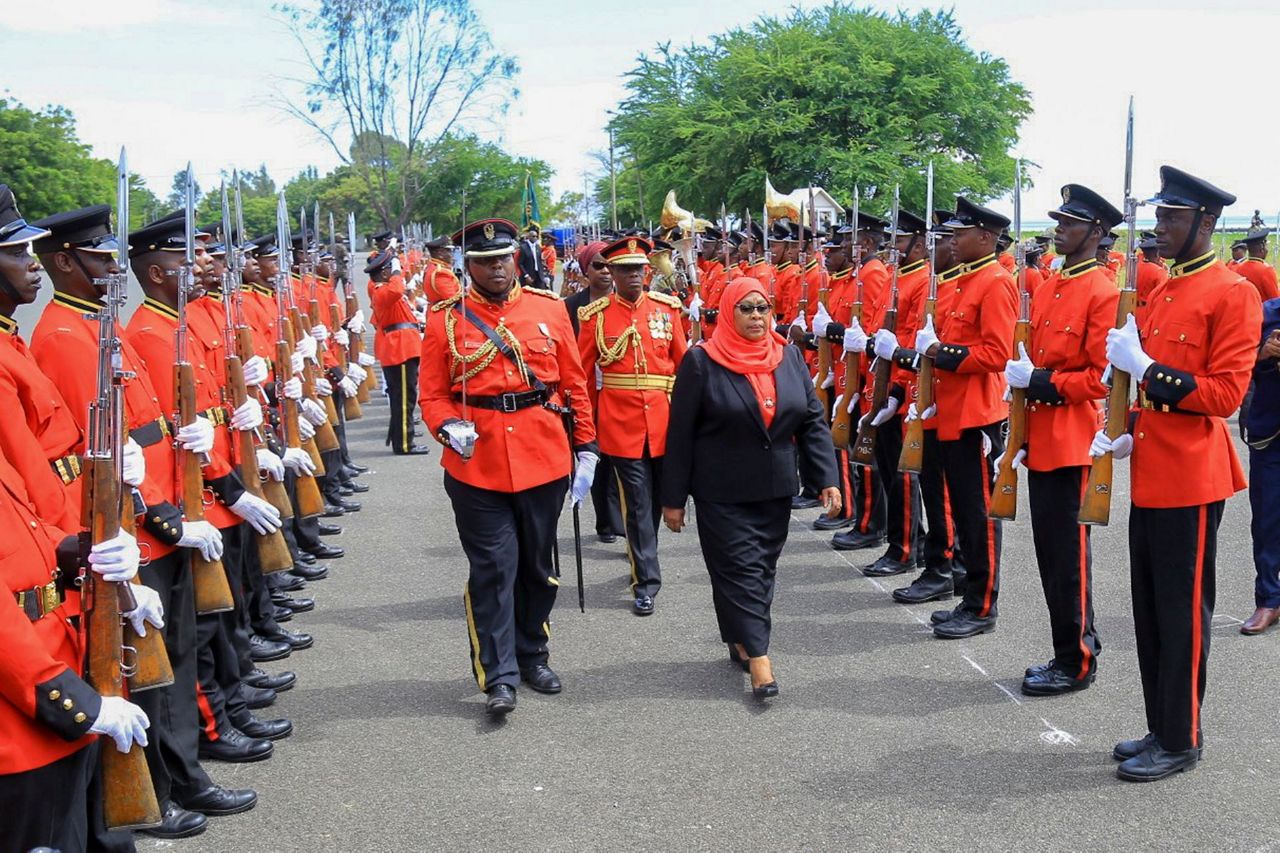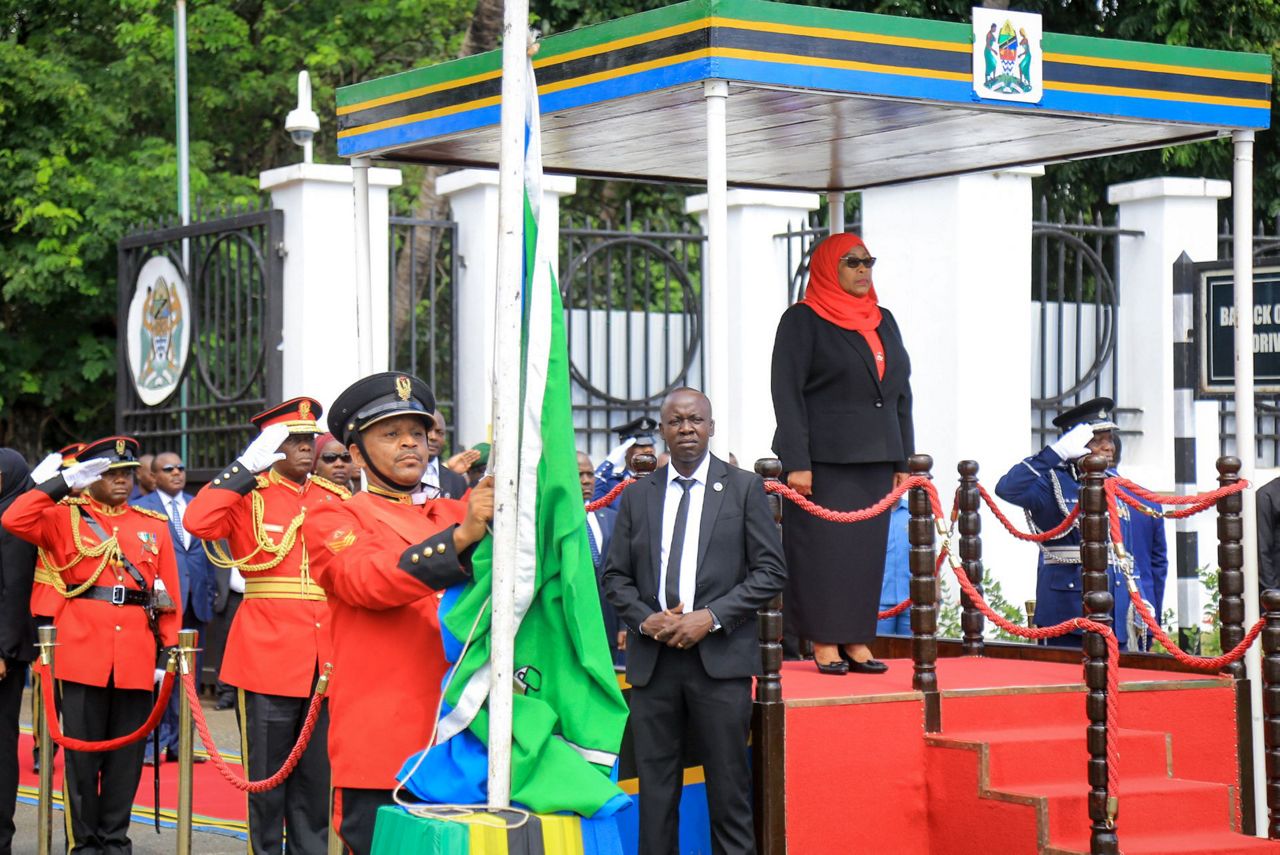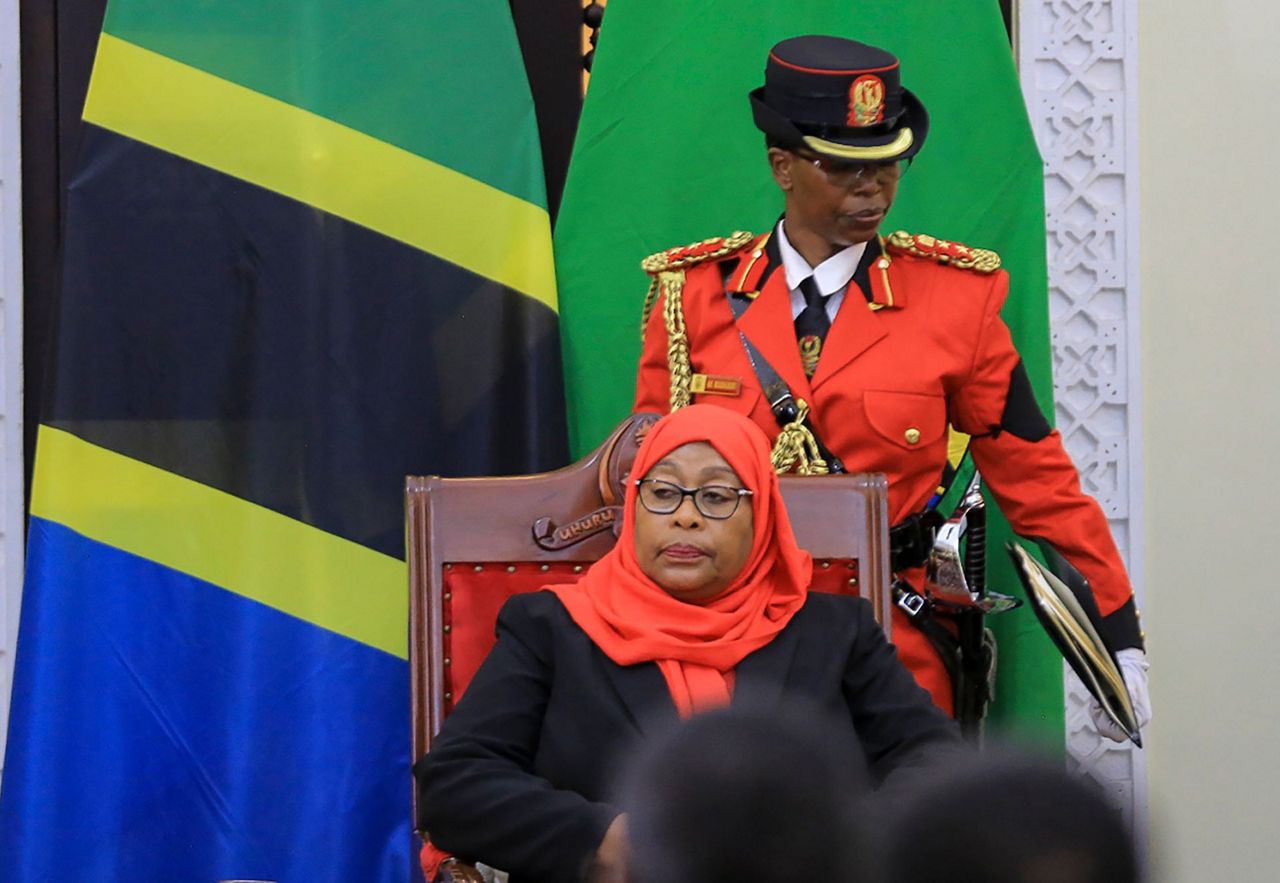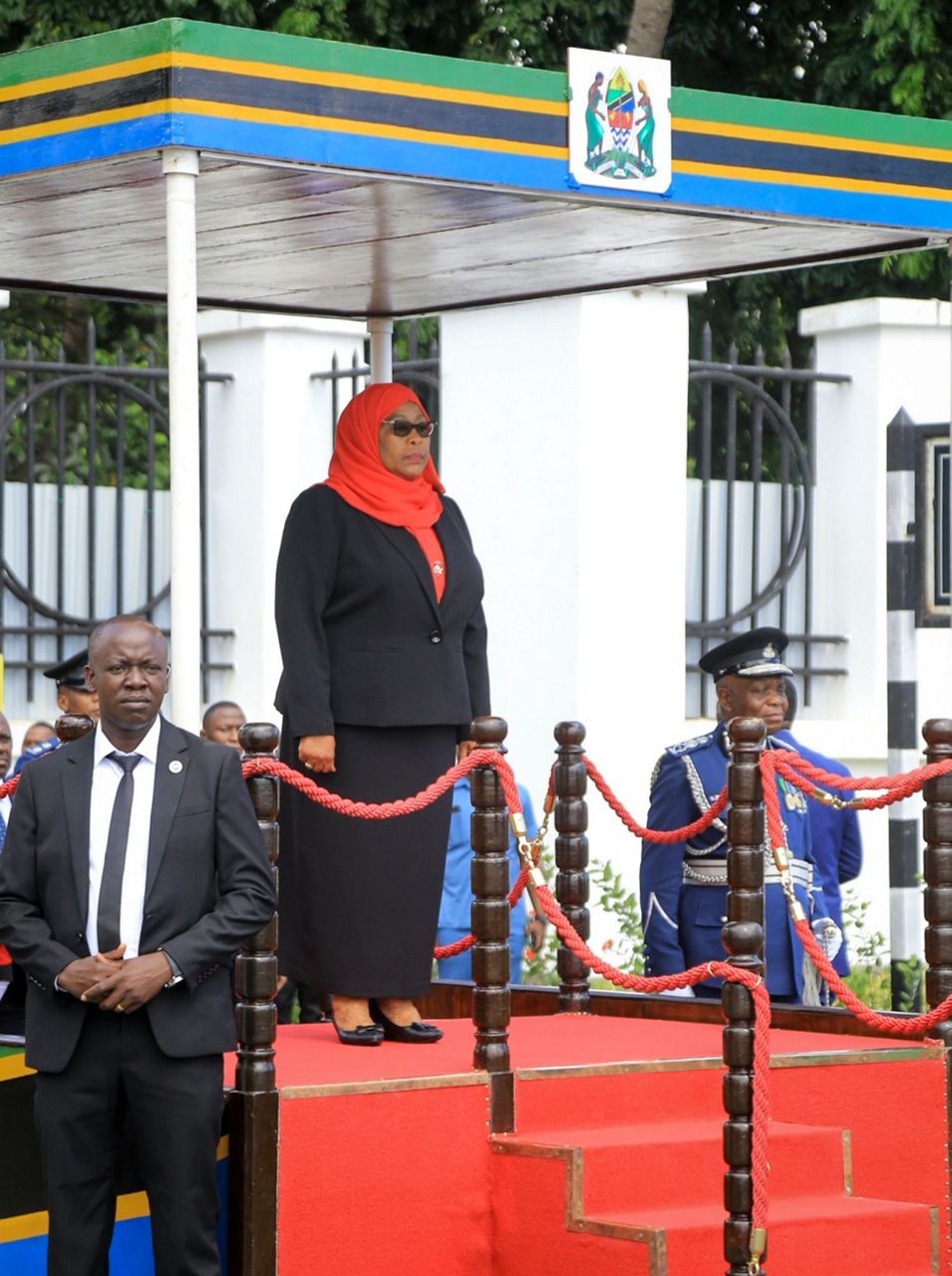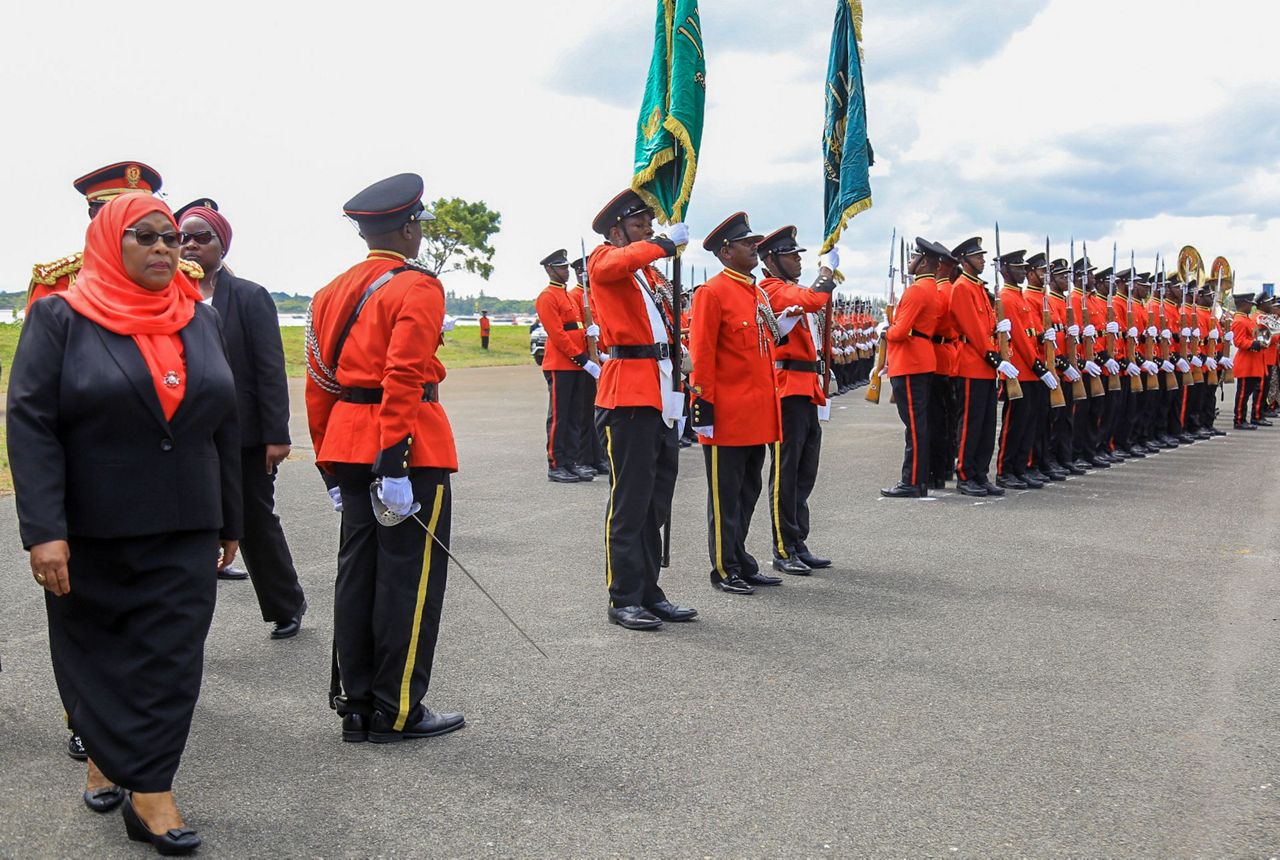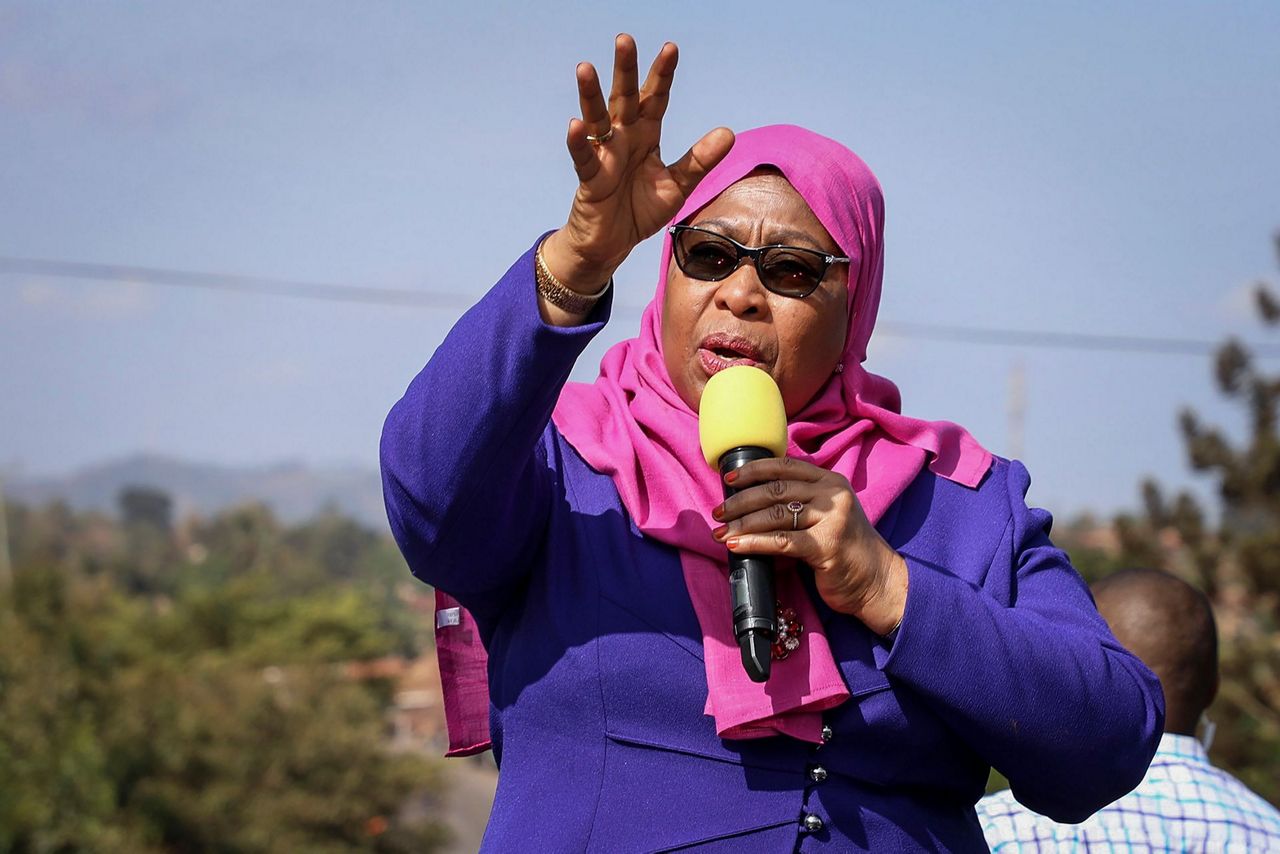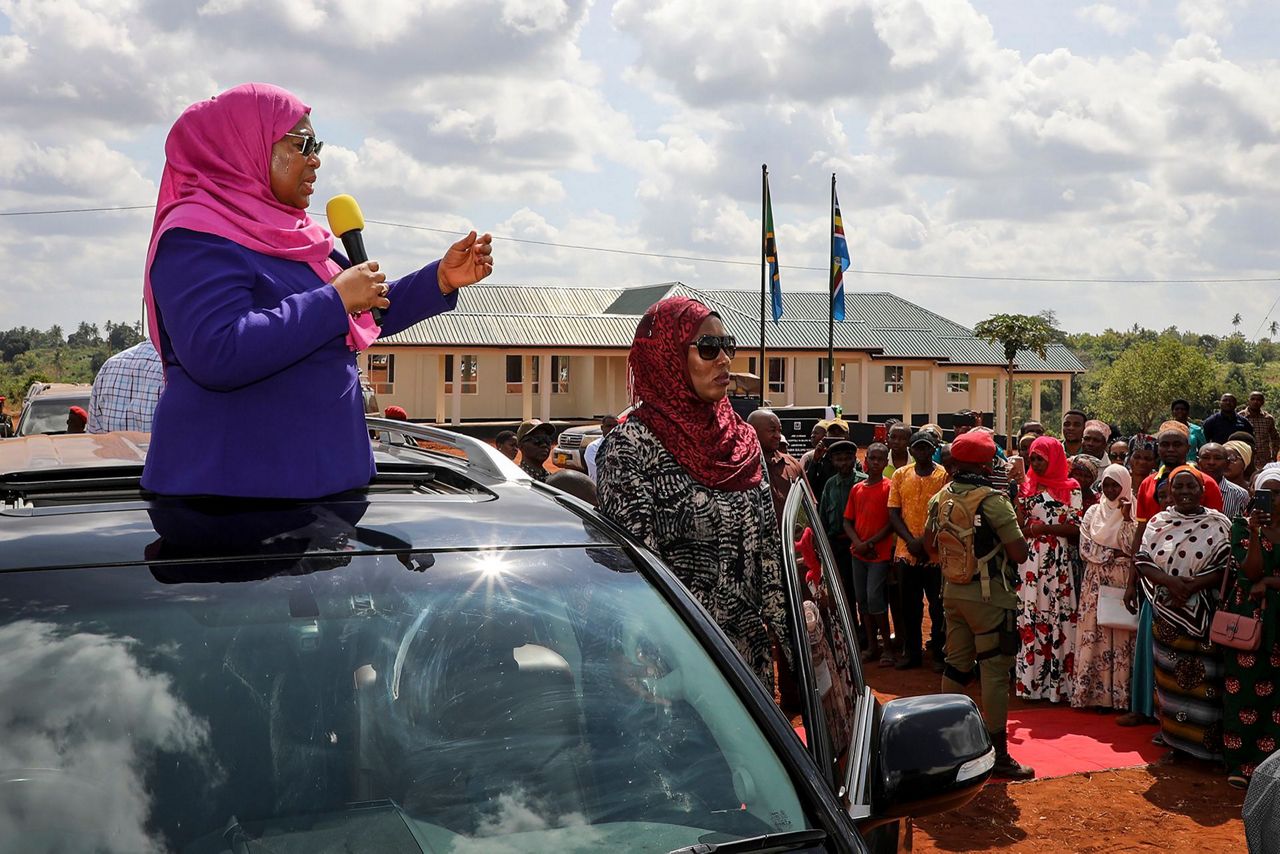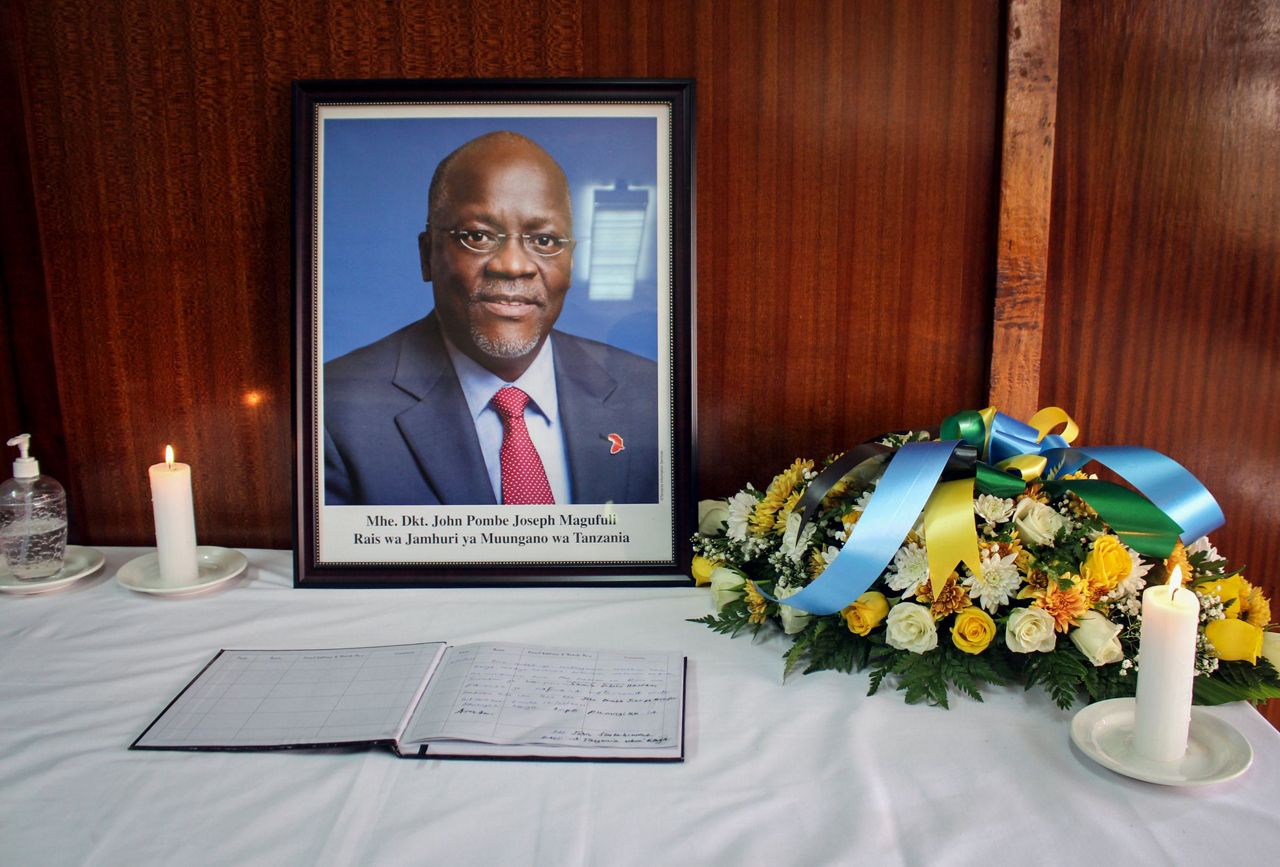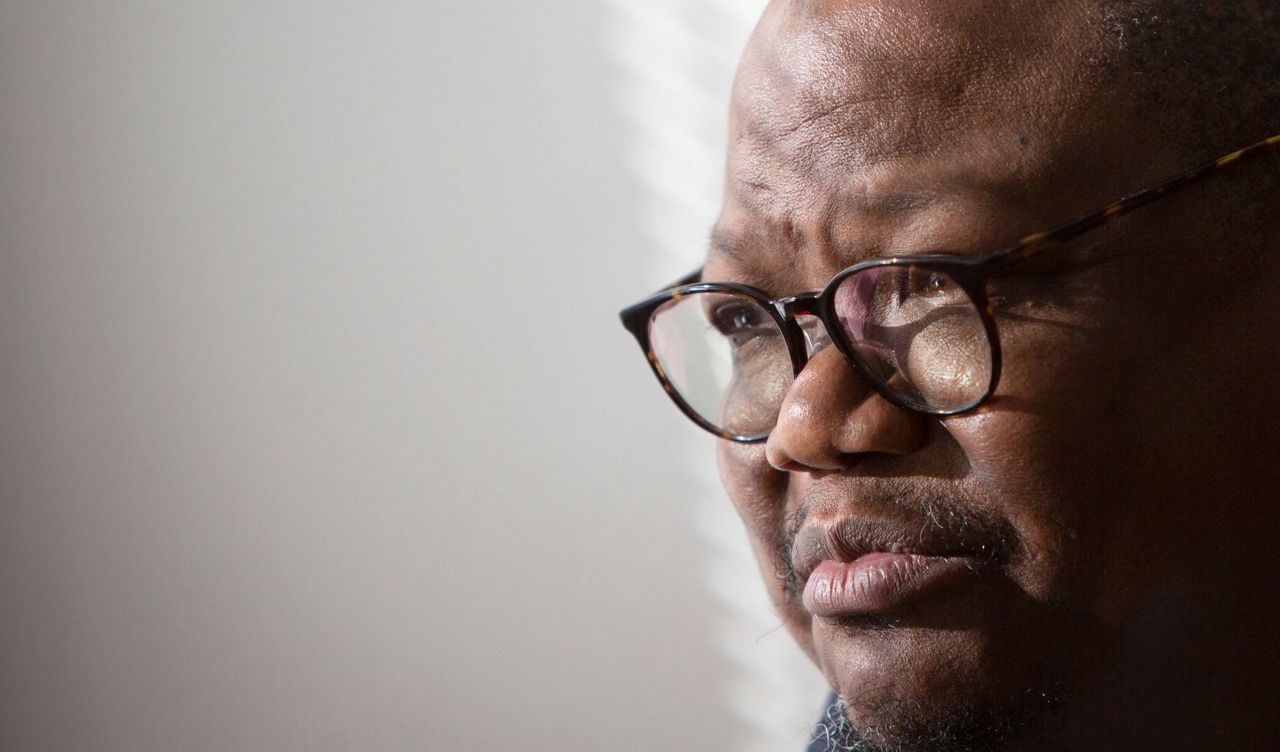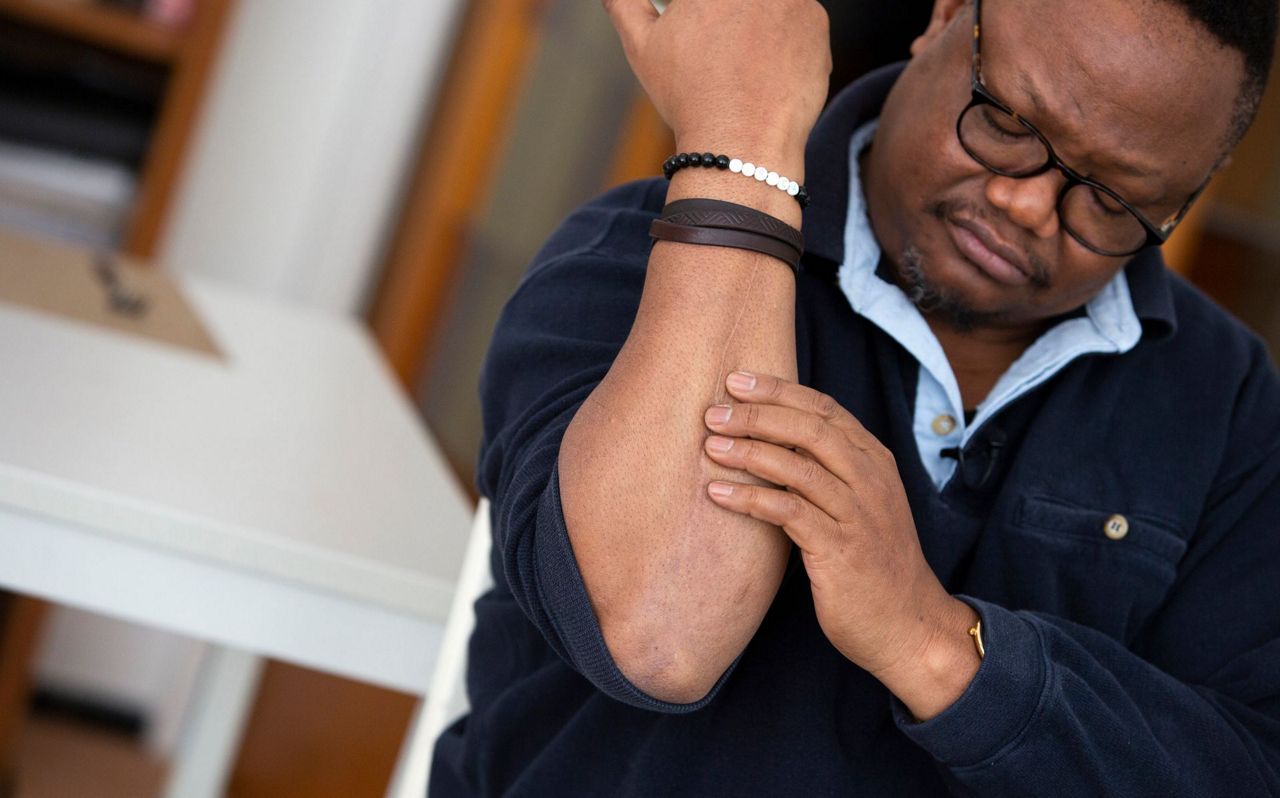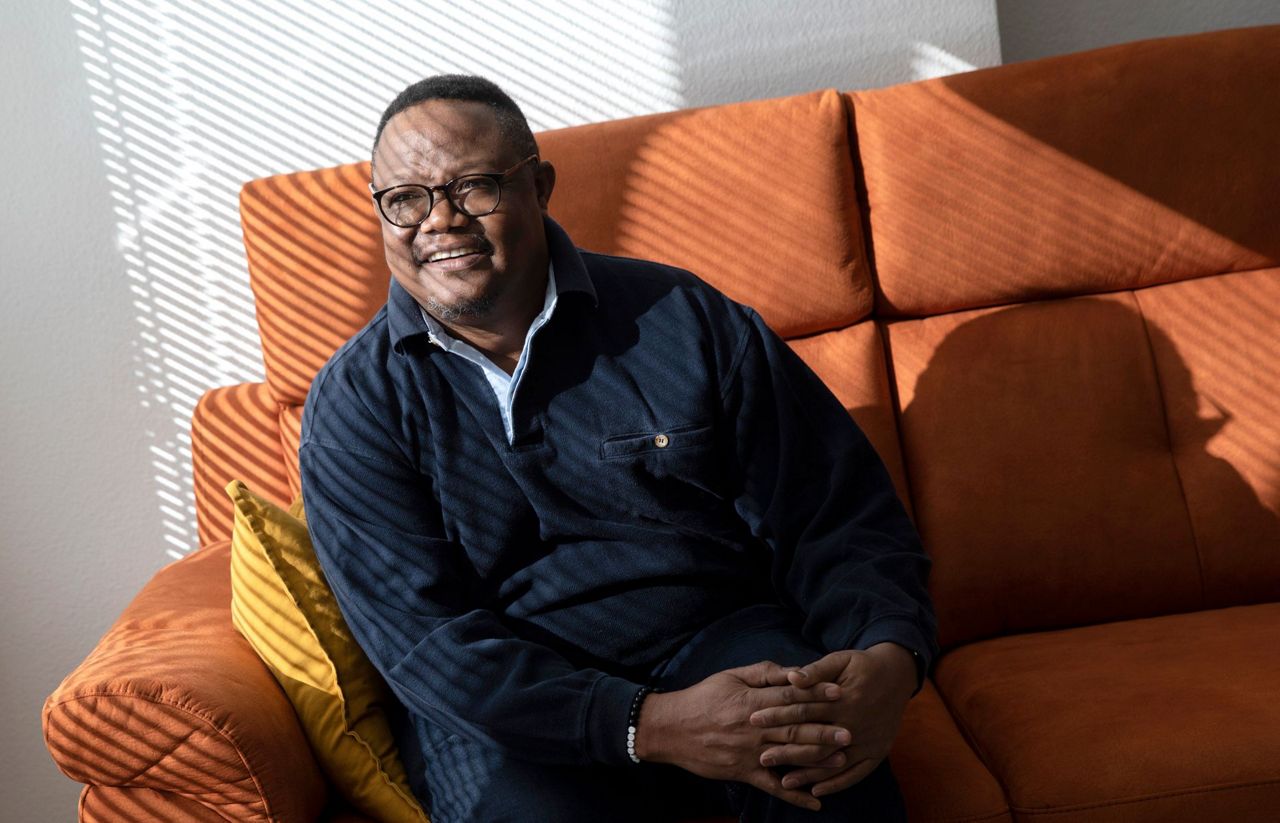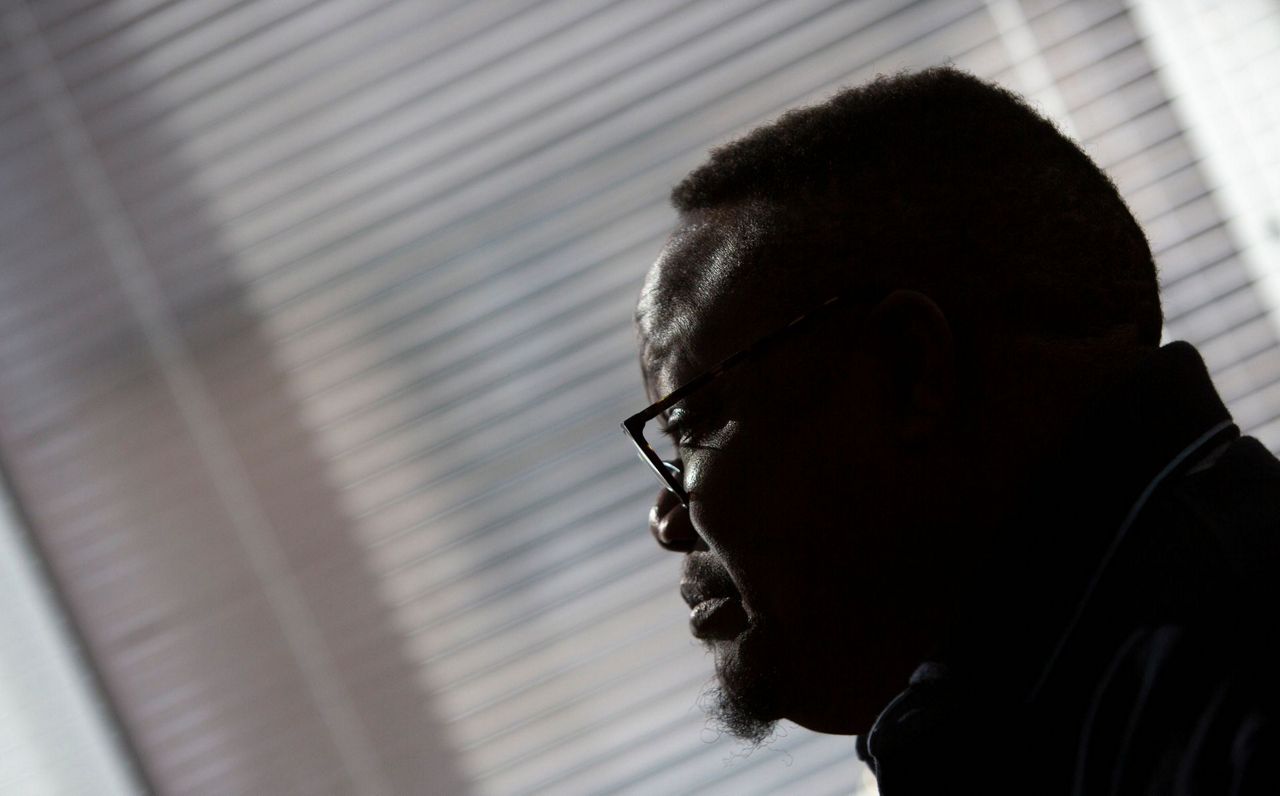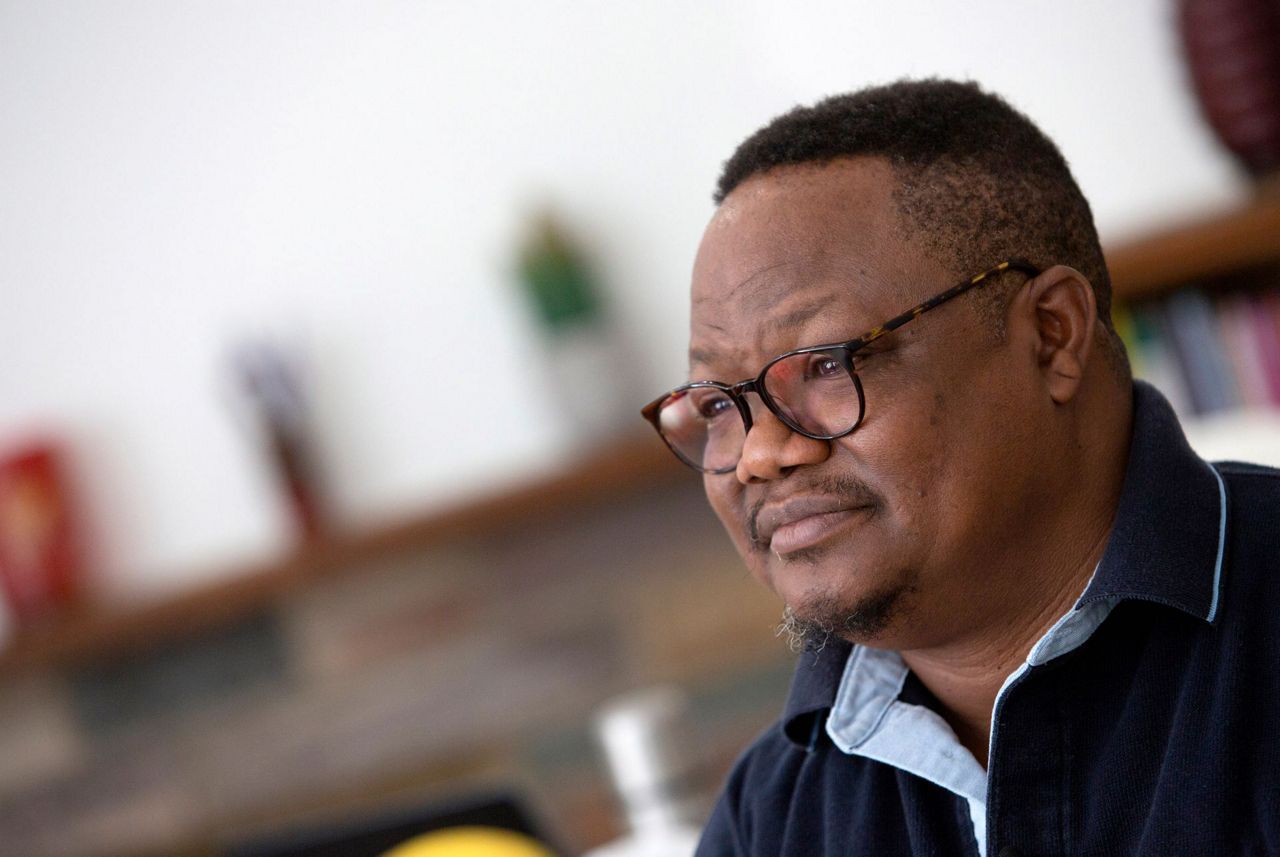DAR ES SALAAM, Tanzania (AP) — Samia Suluhu Hassan made history Friday when she was sworn in as Tanzania’s first female president after the death of her controversial predecessor, John Magufuli, who denied that COVID-19 is a problem in the East African country.
Wearing a hijab and holding up a Quran with her right hand, the 61-year-old Hassan took the oath of office at State House, the government offices in Dar es Salaam, the country’s largest city.
The inauguration was witnessed by Cabinet members, former presidents Ali Hassan Mwinyi and Jakaya Kikwete, and former vice president Abeid Karume. The former heads of state were among the few people in the room wearing face masks to protect against COVID-19.
Hassan succeeds Magufuli, who had not been seen in public for more than two weeks before his passing was announced on state TV late Wednesday. Magufuli had denied that COVID-19 was a problem in Tanzania, saying that national prayer had eradicated the disease from the country. But Magufuli acknowledged weeks before his death that the virus was a danger.
A major test of Hassan’s new presidency will be how she deals with the pandemic. Under Magufuli, Tanzania, one of Africa’s most populous countries with 60 million people, made no efforts to obtain vaccines or promote the use of masks and social distancing to combat the virus. This policy of ignoring the disease endangers neighboring countries, African health officials warn.
Although Hassan announced that Magufuli died of heart failure, exiled opposition leader Tundu Lissu says the president died of COVID-19, citing informed medical sources in Dar es Salaam.
“The immediate job, the immediate decision she has to make, and she doesn’t have much time for it, is what is she going to do about COVID-19?" Lissu told The Associated Press at his place of exile in Belgium.
“President Magufuli defied the world, defied science, defied common sense in his approach to COVID-19 and it finally brought him down,” said Lissu.
"President Samia Saluhu Hassan has to decide very soon whether she is changing course or continuing with the same disastrous approach to COVID-19 that her predecessor took,“ the opposition leader said.
Hassan must also decide how she will address Magufuli’s legacy, including whether to continue with his policies that took Tanzania from a relatively tolerant democracy to a repressive state, Lissu said, questioning if she will be able to restore the country's political freedoms and democracy.
Lissu went into exile in 2017 after he was shot 16 times. The attack came shortly after Magufuli said those who were opposed to his economic reforms deserved to die. Lissu returned to Tanzania to challenge Magufuli in the 2020 elections. He lost to Magufuli in polls marred by violence and widespread allegations of vote-rigging. Lissu returned to exile, saying his life was in danger.
Speaking at her inauguration, Hassan gave little indication that she intended to change course from Magufuli.
“It's not a good day for me to talk to you because I have a wound in my heart," said Hassan, speaking Kiswahili. "Today I have taken an oath different from the rest that I have taken in my career. Those were taken in happiness. Today I took the highest oath of office in mourning,” she said.
She said that Magufuli, “who always liked teaching,” had prepared her for the task ahead. “Nothing shall go wrong,” she assured, urging unity.
“This is the time to stand together and get connected. It’s time to bury our differences, show love to one another and look forward with confidence," she said. "It is not the time to point fingers at each other but to hold hands and move forward to build the new Tanzania that President Magufuli aspired to.”
Hassan will complete Magufuli's second term that began in October. She has had a meteoric rise in politics in a male-dominated field. Both Tanzania and the surrounding East African region are slowly emerging from patriarchy.
After Magufuli selected her as his running mate in 2015, Hassan became Tanzania's first female vice president. She was the second woman to become vice president in the region, after Uganda’s Specioza Naigaga Wandira who was in office from 1994 to 2003.
Born in Zanzibar, Tanzania’s semi-autonomous archipelago, in 1960, Hassan went to primary school and secondary school at a time when very few girls in Tanzania were getting educations as parents thought a woman’s place was that of wife and homemaker.
After graduating from secondary school in 1977, Hassan studied statistics and started working for the government, in the Ministry of Planning and Development. She worked for a World Food Program project in Tanzania in 1992 and then attended the University of Manchester in London to earn a postgraduate diploma in economics. In 2005, she earned a master’s degree in community economic development through a joint program between the Open University of Tanzania and Southern New Hampshire University in the U.S.
Hassan went into politics in 2000 when she became a member of the Zanzibar House of Representatives. In 2010, she won the Makunduchi parliamentary seat with more than 80% percent of the vote. She was appointed a Cabinet minister in 2014 and became vice-chairperson of the Constituent Assembly that drafted a new constitution for Tanzania, a role in which she won respect for deftly handling several challenges.
As president, Hassan's first task will be to unite the ruling Chama Cha Mapinduzi party behind her, said Ed Hobey-Hamsher, senior Africa analyst with the Verisk Maplecroft research firm. The party has been in power since Tanzania's independence.
As a Muslim woman from Zanzibar, Hassan may find it difficult to win the support of the party's mainland Christians, he said, warning that some entrenched leaders may develop “obstructionist strategies” against her. He said it's likely that Hassan will start her rule by maintaining the status quo and not embarking on a significant Cabinet reshuffle.
Hassan is the second woman in East Africa to serve as head of state. Burundi’s Sylvia Kiningi served as interim president of that tiny landlocked country for nearly four months until Feb. 1994.
___
Odula contributed from Nakuru, Kenya. AP journalist Bishr Eltouni in Tienen, Belgium, contributed.
Copyright 2021 The Associated Press. All rights reserved. This material may not be published, broadcast, rewritten or redistributed without permission.



